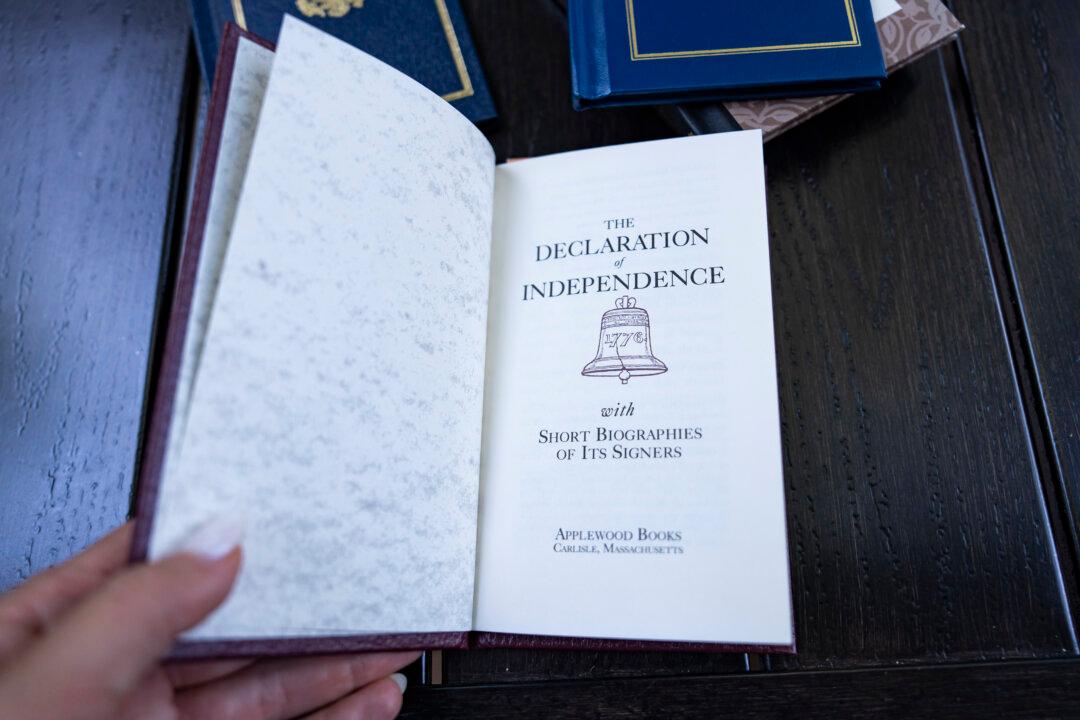Commentary
“We hold these truths to be self-evident, that all men are created equal, that they are endowed by their Creator with certain unalienable rights, that among these are Life, Liberty and the pursuit of Happiness.”
That bold sentence is familiar to anyone with even a cursory knowledge of the Declaration of Independence, and rightly so, for once written and disseminated, Thomas Jefferson’s words became barbs lodged in the heart of tyranny everywhere and for all time. For almost 250 years, they have inspired freedom lovers around the globe, proclaiming a truth universal to all humanity.
Of course, these rights are necessarily linked with responsibilities and obligations. Jefferson says as much in several places throughout the Declaration, writing, for instance, that “it becomes necessary for one people to dissolve the political bands which have connected them with another.” The Declaration speaks of the duty and the necessity of an oppressed people to throw off their oppressor.
But what of individual responsibilities? If the natural law has granted us “certain unalienable rights,” then surely these rights come with obligations.
In this regard, Jefferson’s Declaration is silent, but another document issued that summer of 1776, the Virginia Declaration of Rights, speaks directly to the matter. George Mason, a Founding Father who was friends with Jefferson and other Virginia luminaries of the time, drafted the Virginia Declaration just before Jefferson set to work on the Declaration of Independence. Once the Virginia document was edited and amended, on June 12, 1776, the Virginia Constitutional Convention unanimously adopted it. Jefferson thought so highly of it that he even borrowed some of Mason’s thoughts and words for the first part of the Declaration of Independence.
Here in the Virginia Declaration, we find Section 15, which reads: “That no free government, or the blessings of liberty, can be preserved to any people but by a firm adherence to justice, moderation, temperance, frugality, and virtue and by frequent recurrence to fundamental principles.”
Like so many of the other founders, Mason was a student of the classics and considered himself “a Roman patriot-citizen.” In the generations of Americans who followed Mason and his contemporaries, the same virtues they espoused were preached from church pulpits, were taught in the home, appeared in school textbooks such as the McGuffey Readers, and were promoted by politicians and other public figures. It was generally understood, as John Adams once put it, that “Public virtue cannot exist in a Nation without private virtue, and public Virtue is the only Foundation of Republics.” Many other founders expressed similar sentiments.
Unfortunately, these days, our American republic seems like a wobbly-kneed boxer running out of steam, beaten down by the deep divisions separating Americans one from the other, a discord so rancorous that some actually believe our nation is nearing a civil war. We are so divided that resolution of our troubles and reconciliation with political opposites appear impossible.
But suppose, just suppose, that we began practicing Mason’s “frequent recurrence to fundamental principles.” What might happen if we looked beyond issues to basic classical virtues? Might these not establish some common ground where we might join hands and begin to solve problems?
Consider Mason’s mention of frugality. Right now, the United States is almost $35 trillion in debt, an unimaginable burden on the American people for which Congress deserves the lion’s share of blame.
Yet what of the rest of us? Total personal debt in the United States now stands at more than $17 trillion, an all-time high. Like the federal government, many in our nation are failed practitioners of frugality.
Adopting Mason’s virtue of moderation might also cut across political divisions. Right now, extremists nab the headlines, while the majority of Americans shake their heads in dismay and simply try to carry on with their lives. Perhaps the time has come to shun the wayward and the radicals who drive the daily news and push instead in the direction of compromise and moderation.
This Fourth of July, when, between festivities, we remember the Declaration of Independence and our nation’s founders, is the perfect time to take to heart their warnings about virtue and the preservation of our republic. We need not look beyond our own small corner of the land to put their ideas into action. We can, for instance, teach our children about the connection between liberty and morality, instructing them by both word and deed. We can educate ourselves through reading and discussion of the virtues, just as the founders did. Finally, we can look for commonalities with our family members, friends, and neighbors rather than focusing on destructive political differences.
Such self-government is the beginning and the foundation of all liberty.





